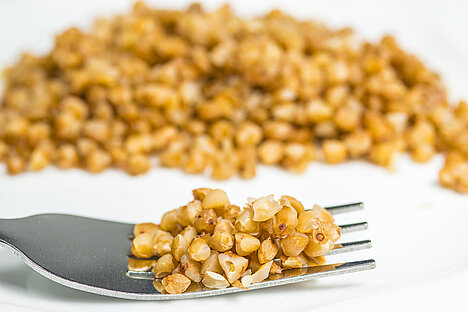Pseudocereals

What is pseudocereal?
Pseudocereals are seeds of plants from different families that can be used in a similar way to cereals. They usually have a nutty taste and a grainy texture. They can be cooked, baked or sprouted and are suitable for various dishes such as bread, muesli or salads. Pseudocereals are rich in vegetable protein, fiber, minerals and antioxidants. They are also gluten-free and have a low glycemic index, which means that they do not raise blood sugar levels as much as other carbohydrates.
Benefits of pseudocereals for dogs
Pseudocereals can have some benefits for dogs, especially if they suffer from a grain intolerance or allergy. Gluten is a protein found in many grains and can cause digestive problems, skin problems or itching in some dogs. Pseudocereals are gluten-free and can therefore be a good alternative. Pseudocereals can also enrich the diet of dogs that follow a vegetarian or vegan diet or suffer from kidney disease. Pseudocereals provide vegetable protein, which contains less phosphorus than animal protein and therefore puts less strain on the kidneys. Pseudocereals can also promote intestinal health as they contain fiber, which stimulates digestion and supports the intestinal flora.
Disadvantages of pseudocereals for dogs
However, pseudocereals are not suitable for all dogs. On the one hand, they can also trigger intolerances or allergies in some dogs as they contain different proteins to cereals. Secondly, they can lead to obesity or flatulence if eaten in excess, as they are quite high in calories and can form gas in the intestines. In addition, pseudocereals should always be cooked well, as they can contain substances that inhibit the absorption of minerals or impair thyroid function when eaten raw.
Pseudocereals can be a useful addition to a dog's diet if they are fed in moderation and there are no intolerances or allergies. They can be a gluten-free alternative to cereals and provide many nutrients. However, they should always be cooked well and should not be the main component of the food ration.
If you notice any signs of hypersensitivity or poisoning in your dog, you should see your vet immediately. We are not a substitute for a vet, but we try to be as accurate as possible. Every dog reacts differently and we recommend you get a second opinion or consult your vet if in doubt.
Stay healthy and take good care of your four-legged friend!😊